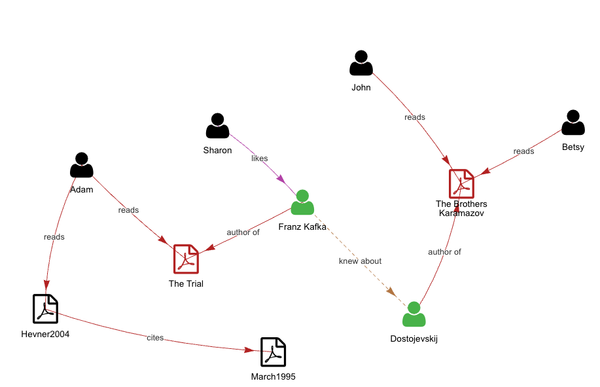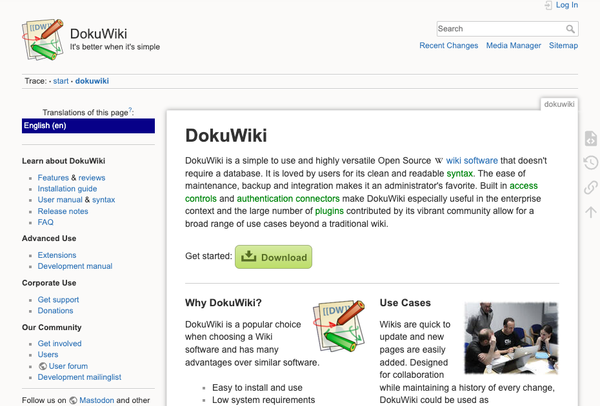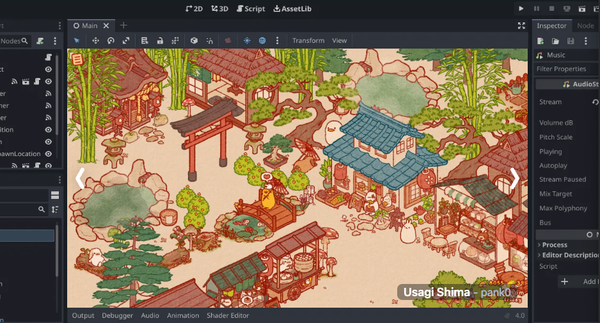Best 18 Open-source Free Wiki Engines for Teams and Enterprise
Table of Content
Everyone knows Wikipedia, the universal multi-language human-friendly encyclopedia that edited by its users. Wikipedia is built on an open-source top of MediaWiki by a dedicated team of developers.
MediaWiki becomes the first popular Wiki engine, which opened the way to dozens of Wiki engines for multipurpose and specific use.
Companies and teams can use self-hosted Wiki as a collaborative, organized writing platform to document instructions, team activities, software documentation and more.
If you are looking for a simple flat-file wiki or Git-based wiki system to use in personal or community projects, you can check our list here:

Here, in this article we collected the best popular open-source, free Libre self-hosted Wiki engines software, as a guide for anyone who wants to create their wiki on their private servers.
Open-source Wiki engines
1- Wiki.JS
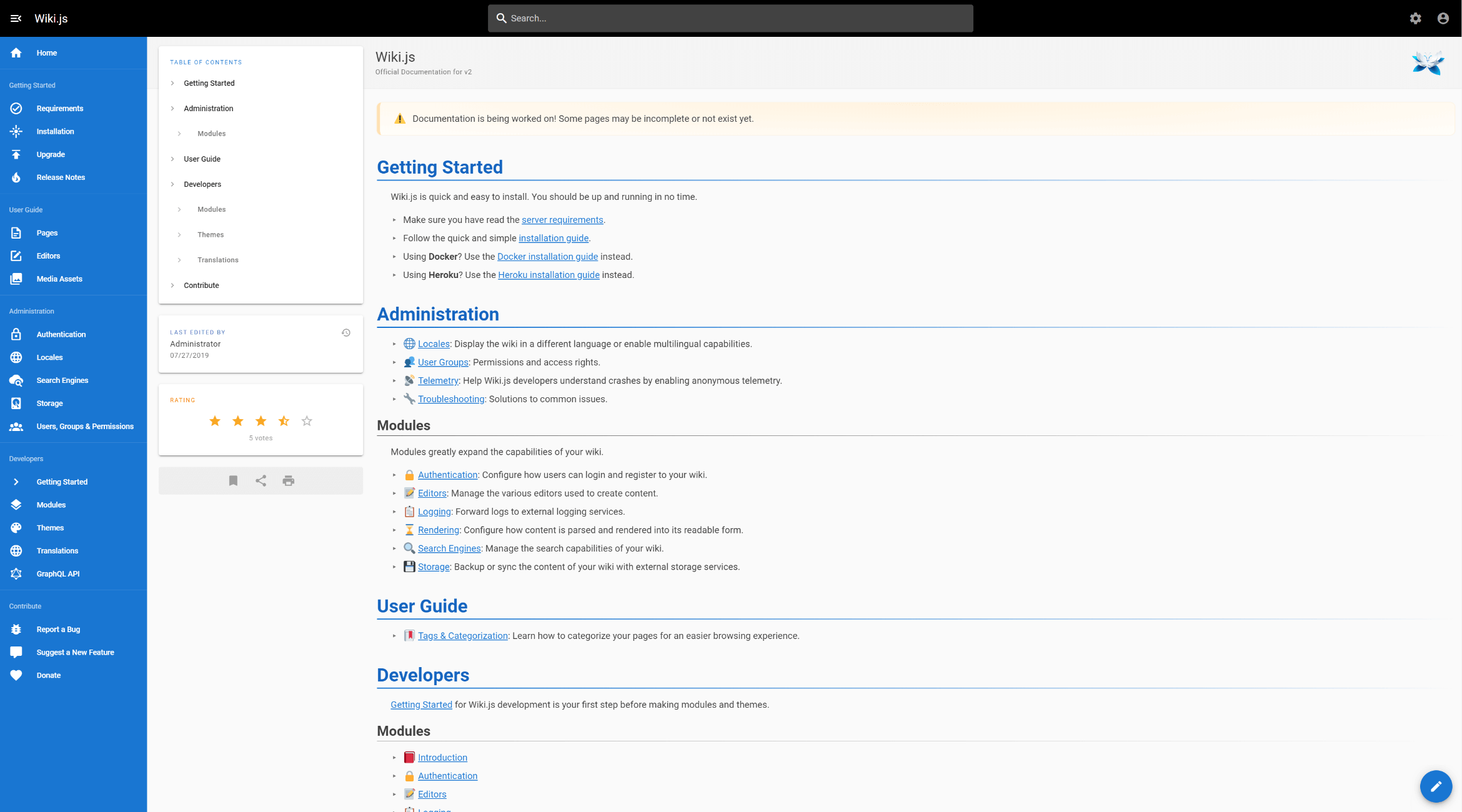
Wiki.js is our first pick here because it is an enterprise-grade Wiki engine with dozens of features and options. It exceeds other engines in performance, features, and customizations.
In Medevel.com, We are using it to organize our projects documents and keep track of our learning activities.
Wiki.js is a modular system with a large set of modules and extensions. As its community grows, expect more add-ons to be added there.
The other thing that we like about Wiki.js is that we run it locally on our devices: Linux, macOS and Windows.

2- BookStack App
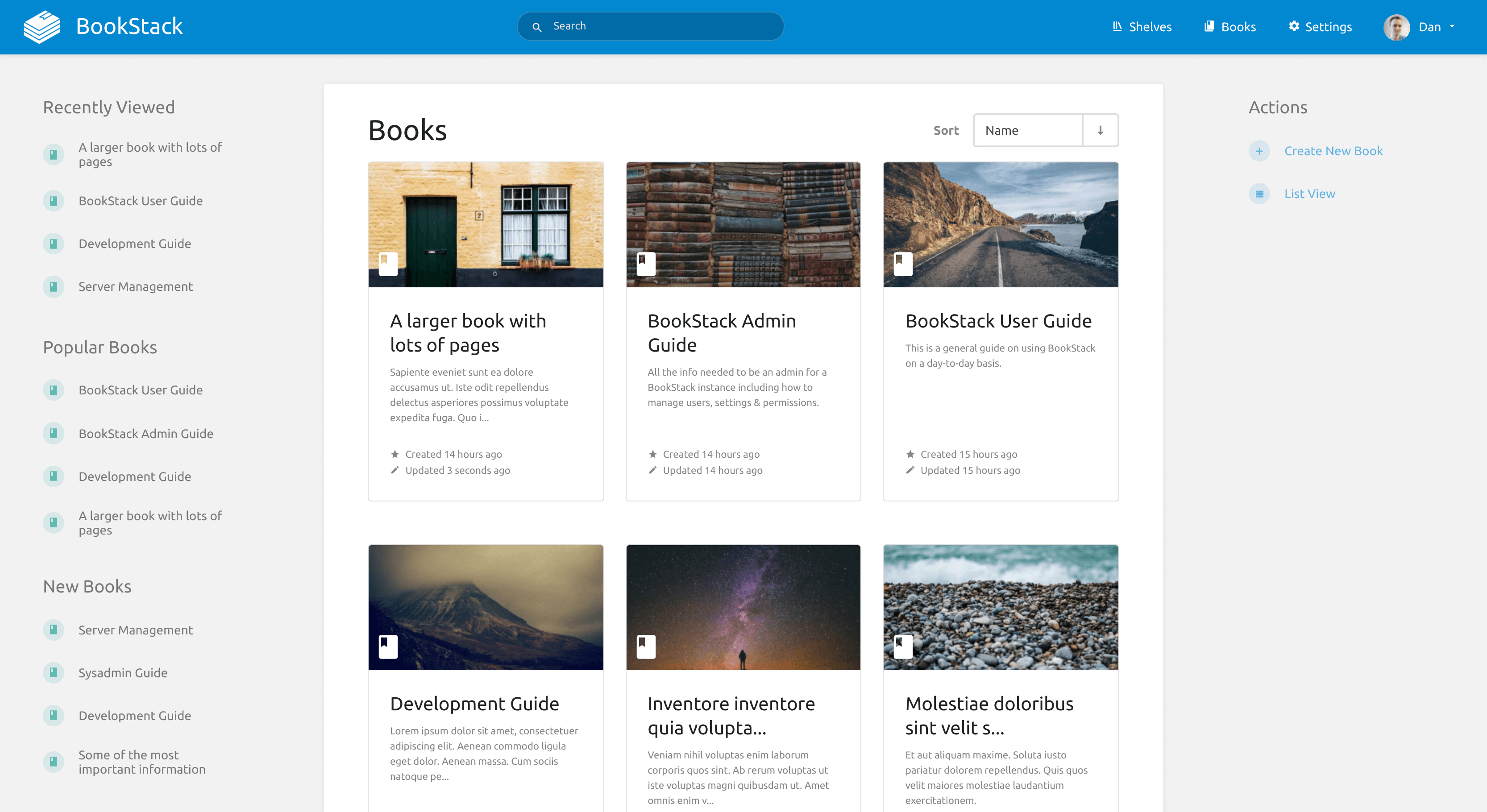
The BookStack App is not just a Wiki Engine, but it works the same. It aims for creating books by easing collaboration among writers and editors, we run it for us and some clients as a Wiki Engine, where they use books as projects.
The application is easy to use for all sort of users with different backgrounds. It allows managing several books, categories, unlimited pages and comes with a powerful history and revision system for editors.

4- TWiki
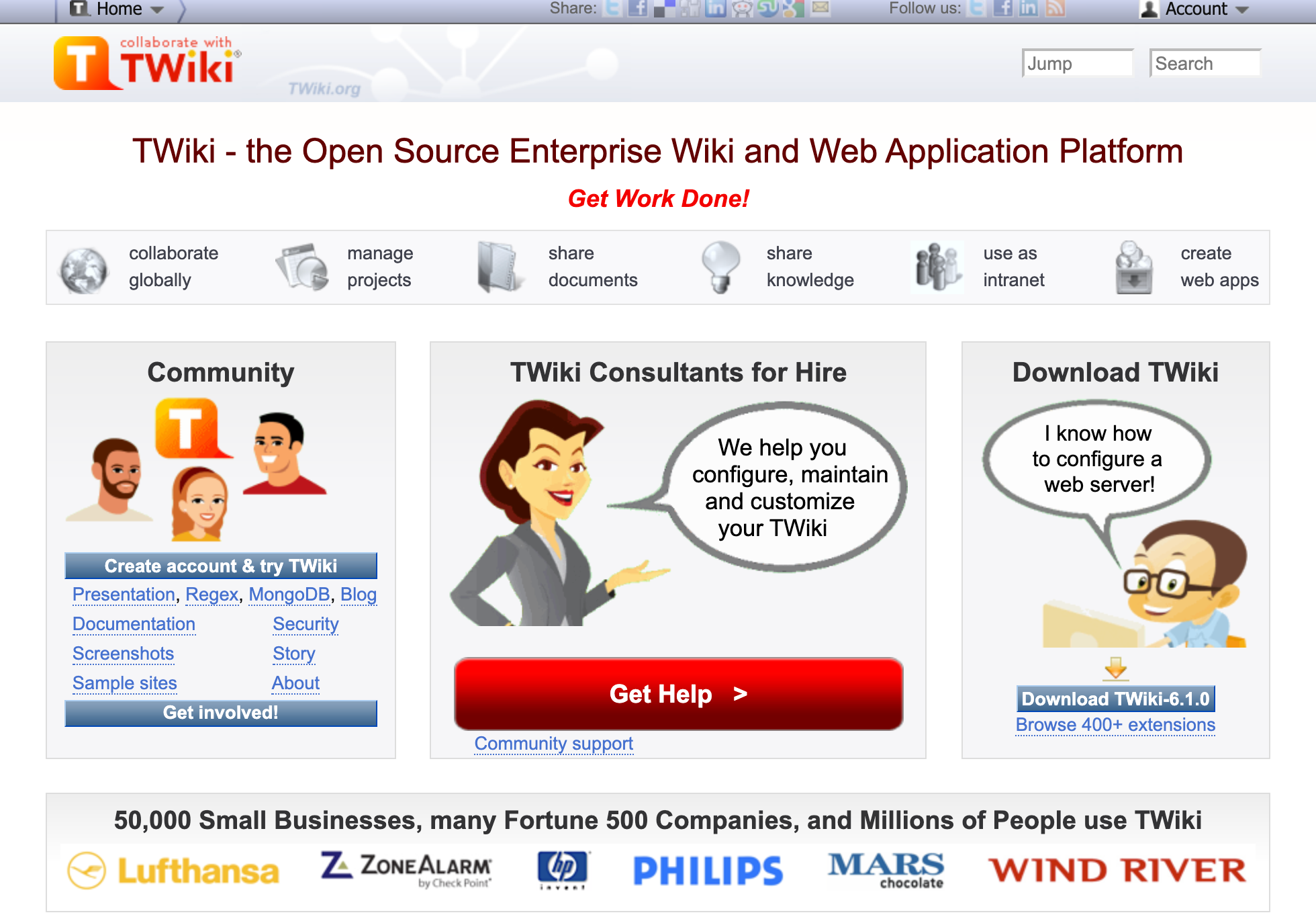
TWiki is not just another Wiki engine, it is also a consummate web application development platform. It comes with all set of wiki features alongside a long list of development tools to build a complex web apps.
TWiki has a library of plugins which extend its functionalities and features.

4- XWiki
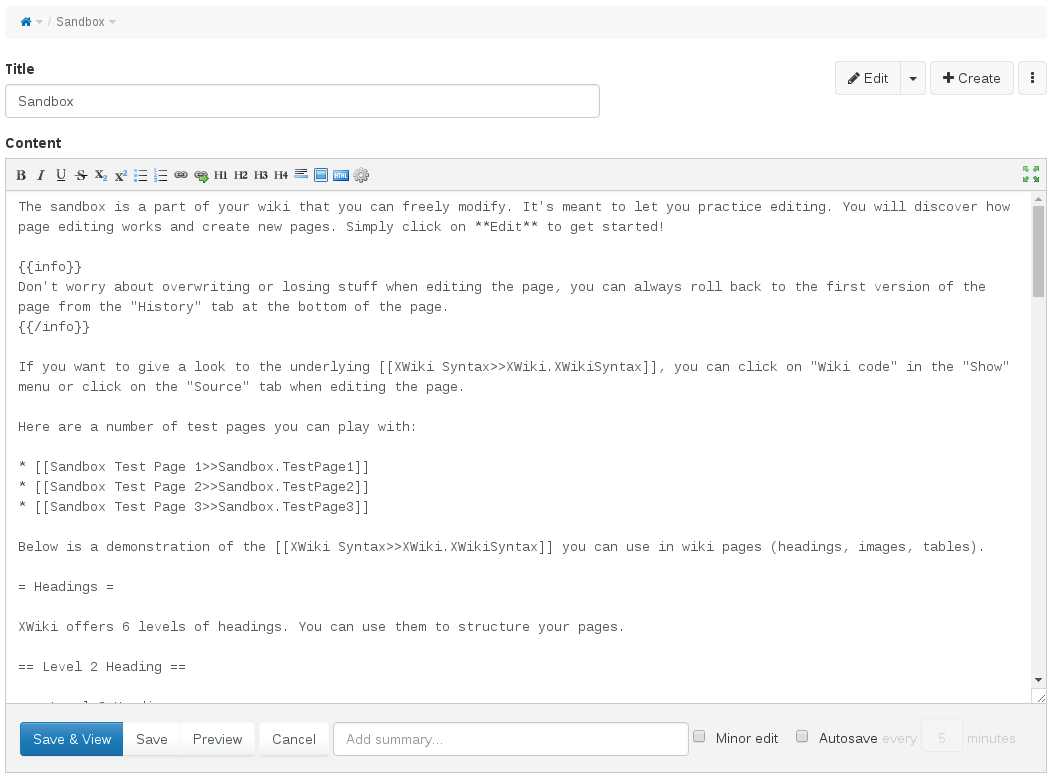
XWiki is an open-source wiki engine for enterprise. It focuses on productivity, collaboration, and simplicity.
The developers offer a powerful fancy control dashboard with responsive options which works seamlessly on mobile and tablets. It has its set of apps and modules and a developer-friendly API.
XWiki export options can export the content to numerous extensions like PDF, ODT, RTF, XML and HTML.
It supports all soft of file attachments, and offers a full control over the page lifecycle.
XWiki has the traditional Wiki syntax editor and WYSIWYG editor for non-experienced users.

5- DokuWiki
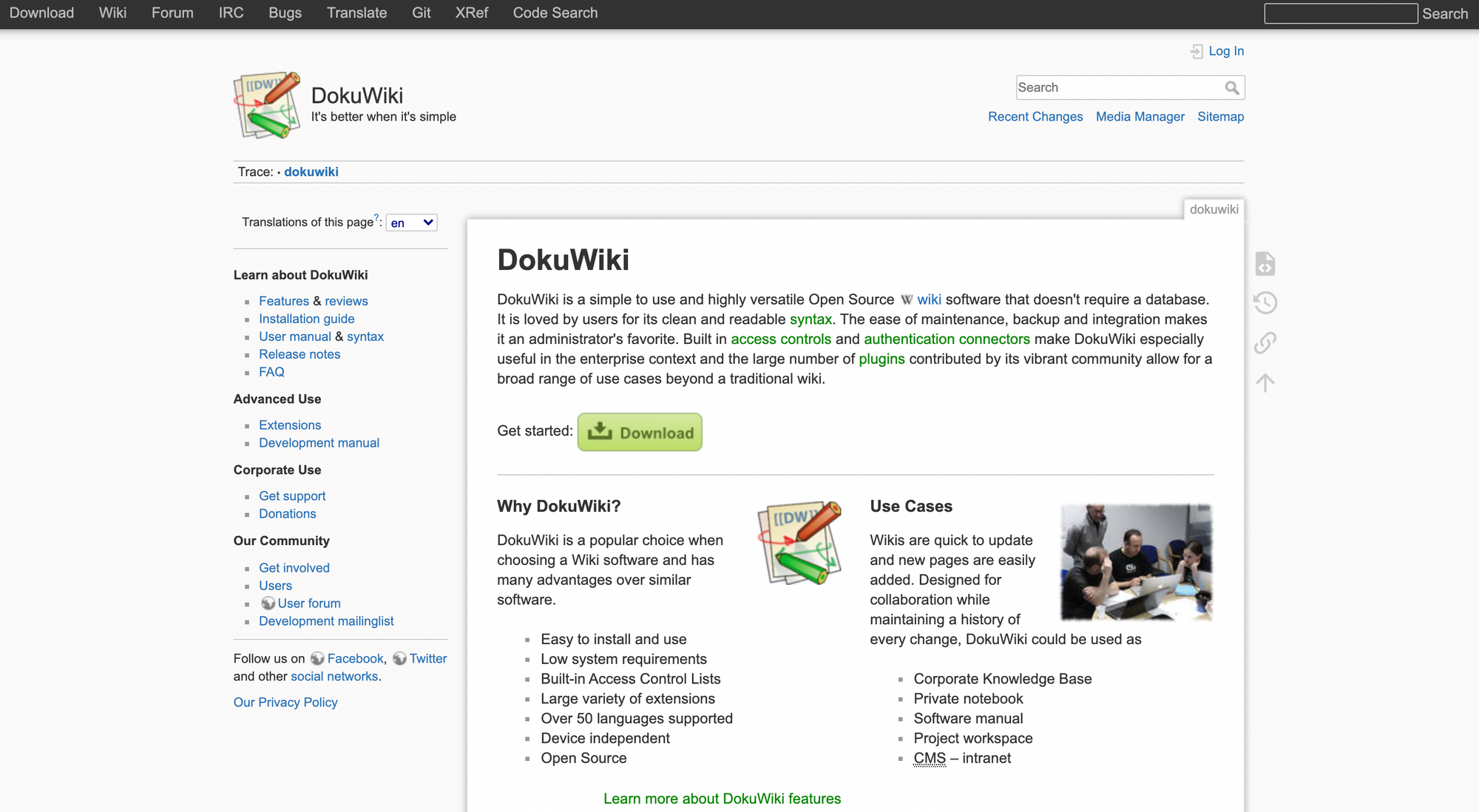
DokuWiki is a popular PHP-based open-source wiki that has been standing for years. It offers a multilingual support as it packed by a large community of experienced users and developer from all over the world.
When it comes to configuration and customization, DokuWiki has a large set of themes, modules, plugins and configuration options, which makes it the right choice for tech-savvy teams.

6- TikiWiki CMS
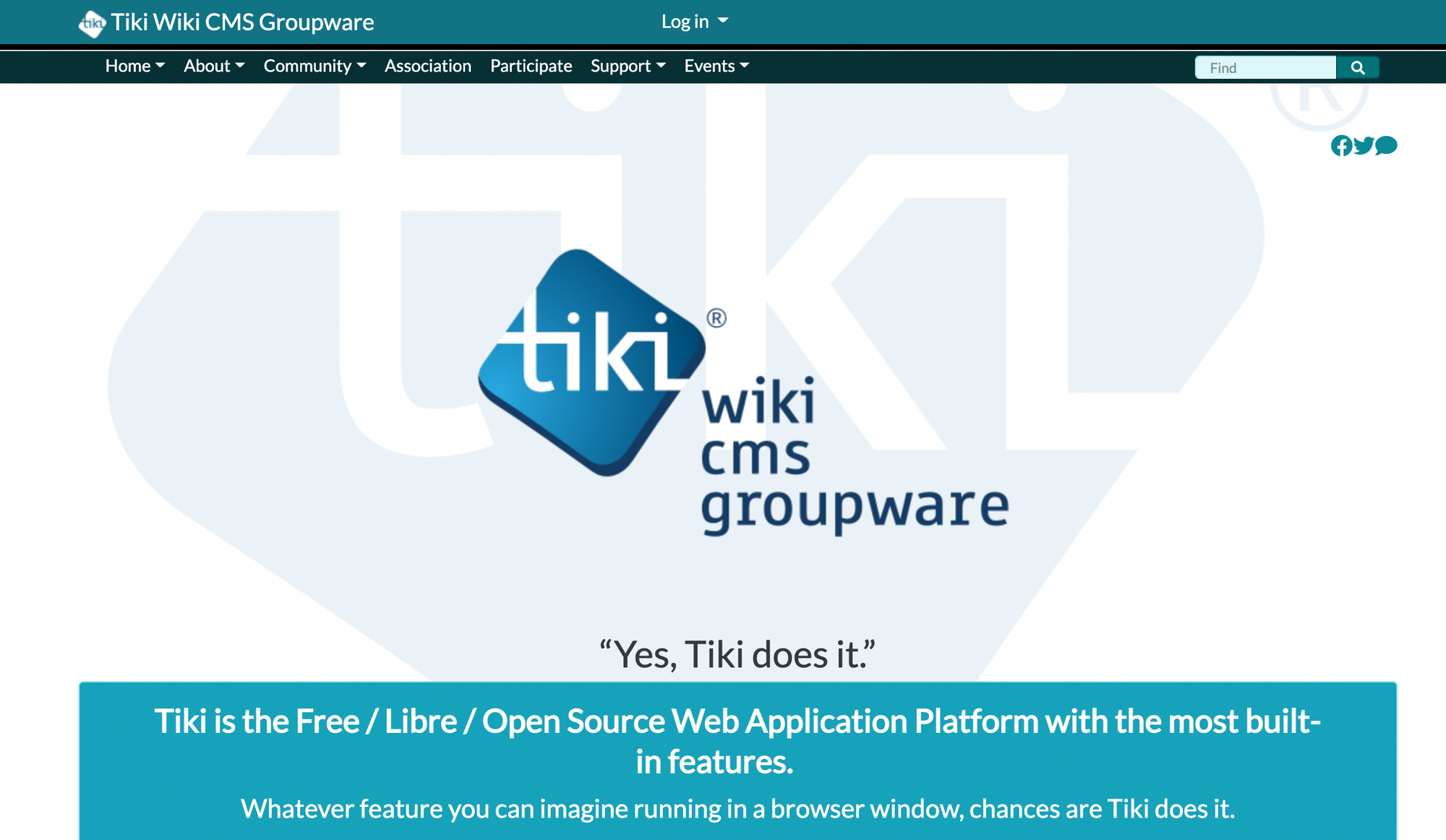
It may look as a Wiki, but it's not just another Wiki engine, It is a complete groupware and CMS for teams and enterprise as well as a web app development platform.
TikiWiki features include: editors, forums, form wizard control, custom fields and custom data structure management options, calendar and events management, galleries, survey, quizzes, polls, blogs and more.
7- PmWiki
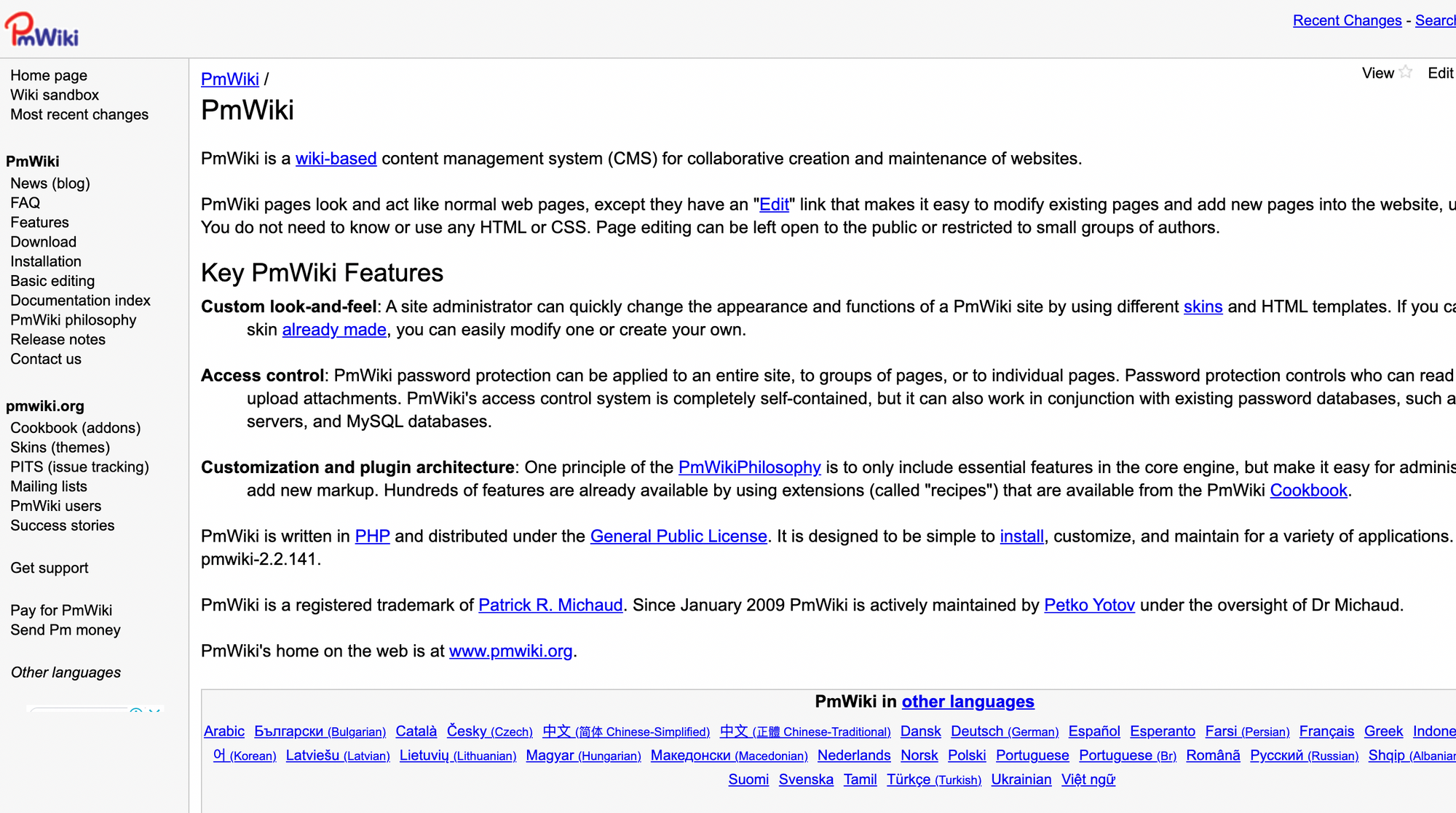
PmWiki is a lightweight open-source wiki built with PHP. It offers a spam protection, page editing, revisions, RSS feeds, search tools, page group management and dozens of themes and plugins.
This wiki is pretty straightforward that does not require a steep learning curve. Some may prefer it as a personal wiki engine.

8- TiddlyWiki

TiddlyWiki has been my favorite wiki on this list, It is an open-source portal one-file wiki that does not even require install. Despite its simple use and look, it has a rich list of features, plugins, and themes.
TiddlyWiki can be customized and modified according as required; however, some customization requires the user to dive deep in documentation and has a good coding experience.
9- Outline
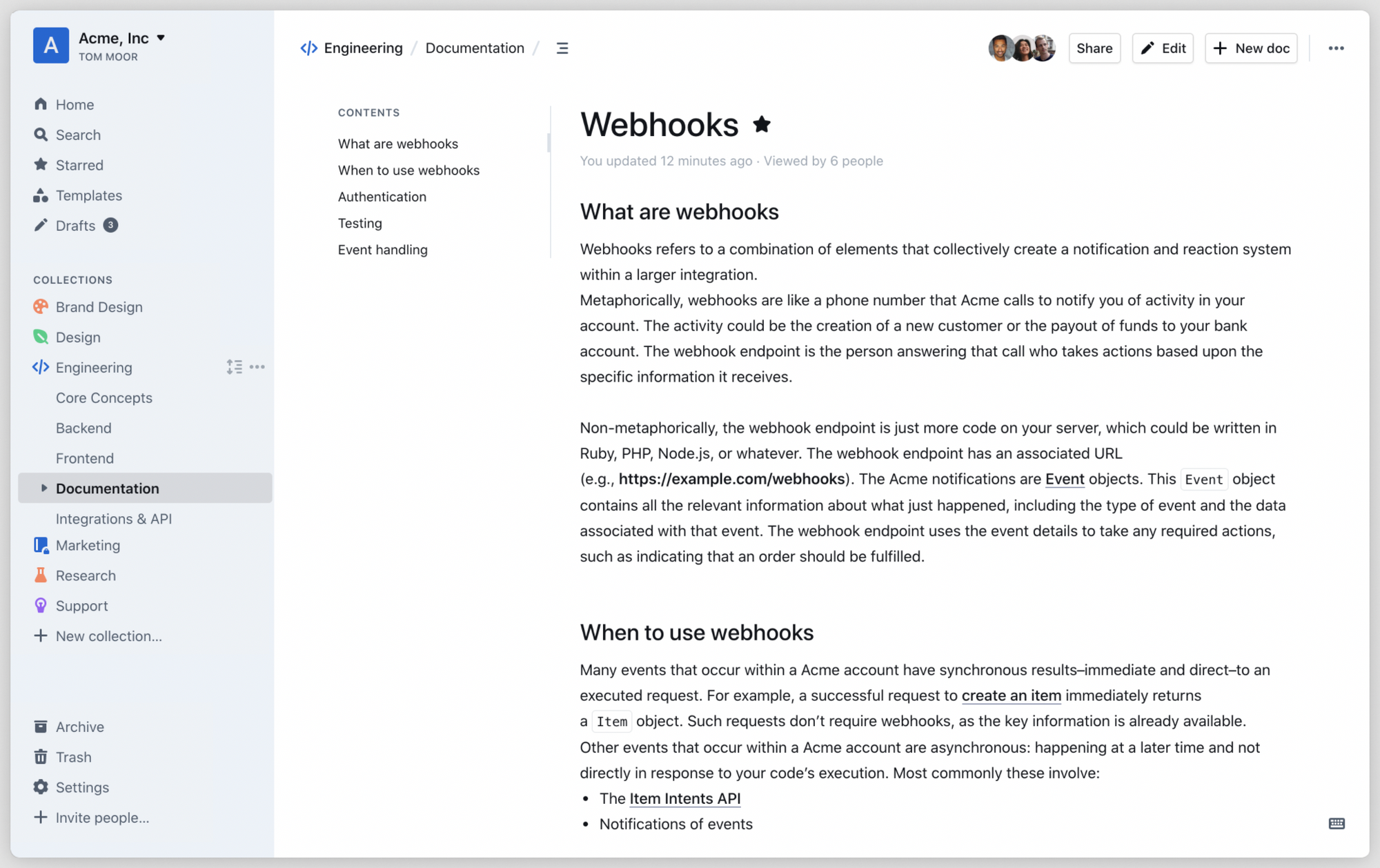
Outline is a fairly new Wiki engine for teams which built on top of Node.JS, React and PostgreSQL.
It has a simple user-interface and rich features list with a dozen of customization options. It offers a docker install which can works seamlessly on Windows, Linux, and macOS.
Keep in mind that the project is under heavy development, which suggest more features in the near future.

10- Gollum
Gollum is a GitHub-based Wiki engine for developers to organize software documentation. It uses GitHub repository for markdown files and Gollum engine to control and organize the content.
It features: RSS feed, UML diagram support, BibTeX and citation support, macros and more.
11- MediaWiki
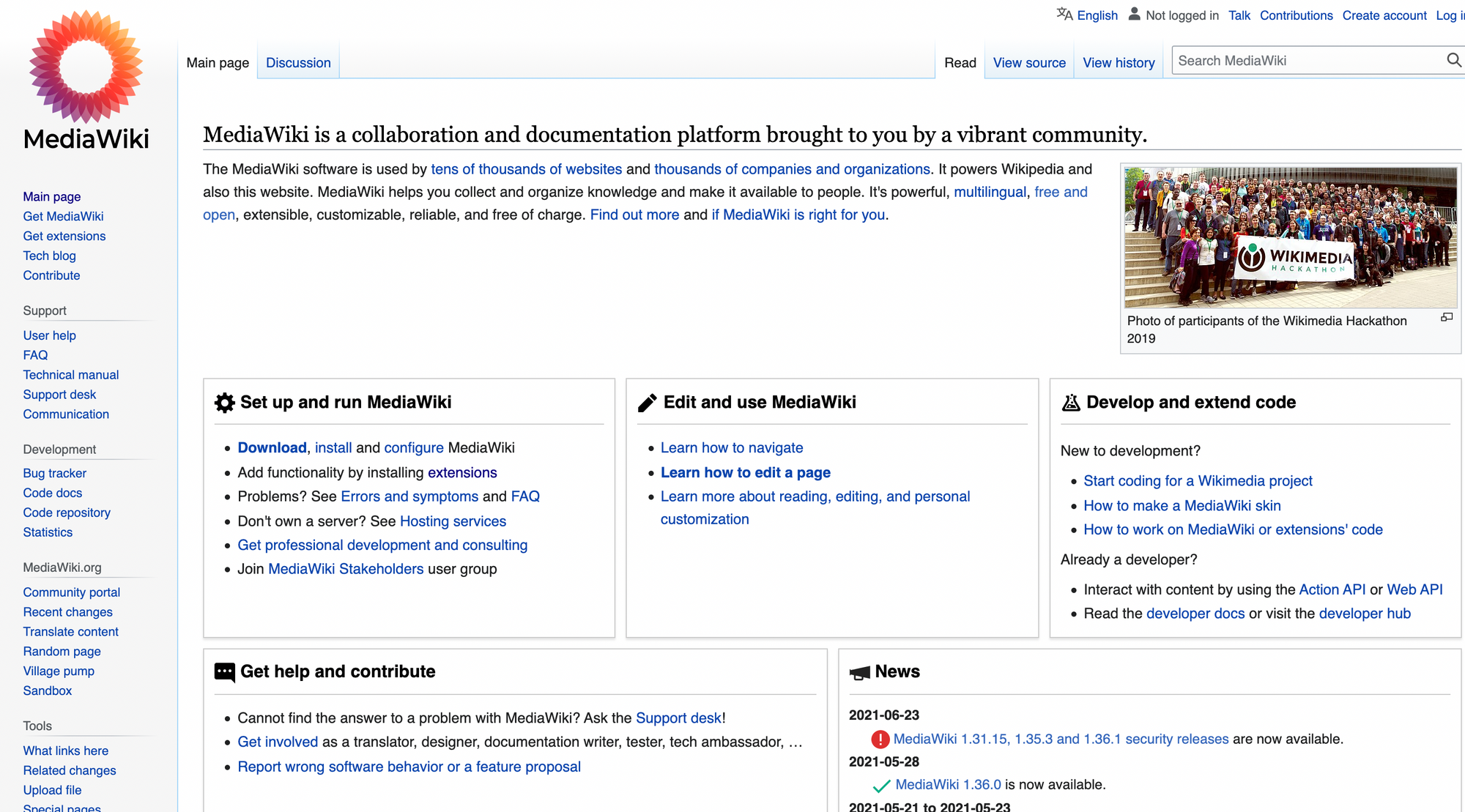
MediaWiki is an open-source Wiki engine that runs Wikipedia. It is the oldest system in the list and some may consider it the king of Wiki engines. It supports almost all available languages as it is easy to install and use.
It is available to download for free for users to host it at their server and start creating, editing and organizing their pages and media content.
MediaWiki has a tremendous list of customization options tips, extensions themes.
_2023_001_(cropped).jpg/320px-At_Wikimedia_Hackathon_Athens_(MP)_2023_001_(cropped).jpg)
12- Amusewiki

13- GROWI

14- WackoWiki

15- Quiki

16- Mycorrhiza

17- JINGO

18- MoinMoin

In the end
Here, as we listed all popular open-source Wiki engines, It is up to you choosing the one that fits you and your team requirements. We encourage you to narrow it down to three or two, then go throw all features and compare to select the right one.
If you have any other open-source Wiki engine system that we miss, send to us and we will add it.







